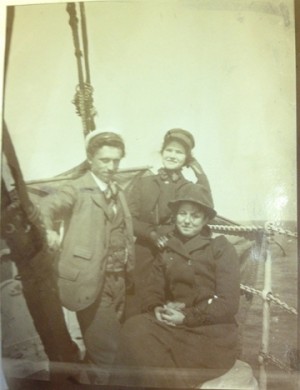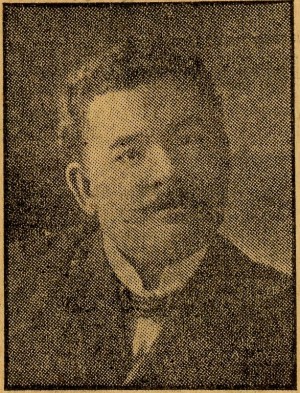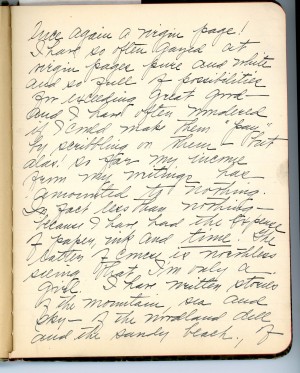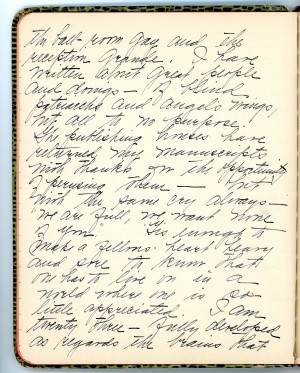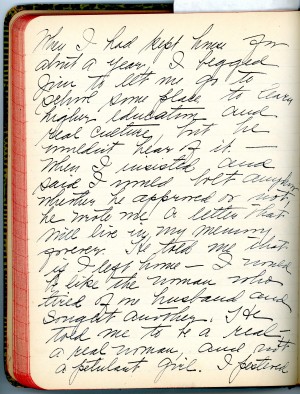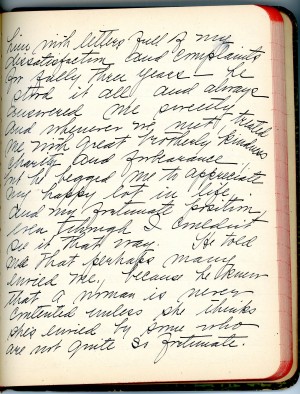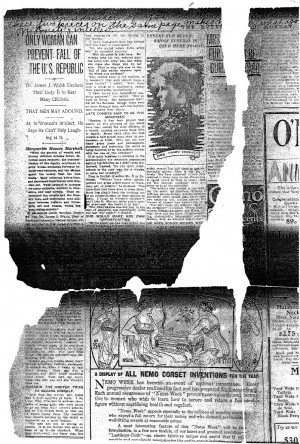I’ve been volunteering at PAHRC this summer, and am currently creating an inventory for two artificial collections: “handwritten manuscripts” and “manuscripts books.” It appears that many of the items in these collections were removed from manuscript collections.
For instance, many of the items that I’ve come across were created by Josephine M. Walsh. These materials, mostly diaries, were likely pulled from the Walsh family papers, a collection that documents the Martin J. Walsh (1840-1910) family, in particular Martin’s sons James J. Walsh and Joseph Walsh, both of whom were doctors.
Josephine Walsh was the youngest child of Martin Walsh, a prominent general goods businessman who lived in Parsons, PA, and Bridget Golden Walsh, the niece of Martin’s business partner. As one of six children, she was more than twenty years younger than her distinguished older brothers, James and Joseph. Joseph Walsh, based in Philadelphia, became a physician and studied tuberculosis. James Walsh cut short his Jesuit education due to his interest in medicine. Based in New York, he went on to become a doctor, a well-known lecturer, and author of several books on religion and healing.
Josephine’s mother died in 1895, when she was 12. Her father died fifteen years later. Josephine cared for him during the last two years of his life, after a stroke left him weakened.
Josephine’s diaries span her young adulthood, from her time at Mount St. Joseph’s Academy until her twenties. They are full of travel notes, commentary on social events, and writings on her family and even their shop business. Story drafts and inspirational ideas are scattered throughout her notebooks. She also wrote plays, which she and her friends performed for their families.
Though her family was quite wealthy, she apparently sought financial independence through her stories. A diary entry from 1906 laments her rejections from publishing houses.
"So far the income from my writings has amounted to nothing. In fact less than nothing – because I have had the expense of paper, ink and time!"
Josie wanted to be a writer, but this was a tough dream for a woman in the early twentieth century. It appears that her family did not support her ambition. Her brother James in particular had a very strict idea of a woman’s domestic responsibilities, and did not allow her to pursue anything else.
"When I had kept house for about a year, I begged Jim to let me go to school some place to learn higher education and real culture, but he wouldn’t hear of it. When I insisted and said I would bolt anyhow whether he approved or not, he wrote me a letter that will live in my memory forever. He told me that if I left home – I would be like the woman who tired of one husband and sought another. He told me to be a real – a real woman, and not a petulant girl. I pestered him with letters full of my dissatisfactions for fully three years…he begged me to appreciate my happy lot in life and my fortunate position, even though I couldn’t see it that way."
The Josephine Walsh papers as well as the Walsh family papers would be very useful for researchers interested in the lives of wealthy women, or more specifically Catholic women, around the turn of the 20th century. These papers also document certain views that were held during this time period about women and a woman's "proper place."


